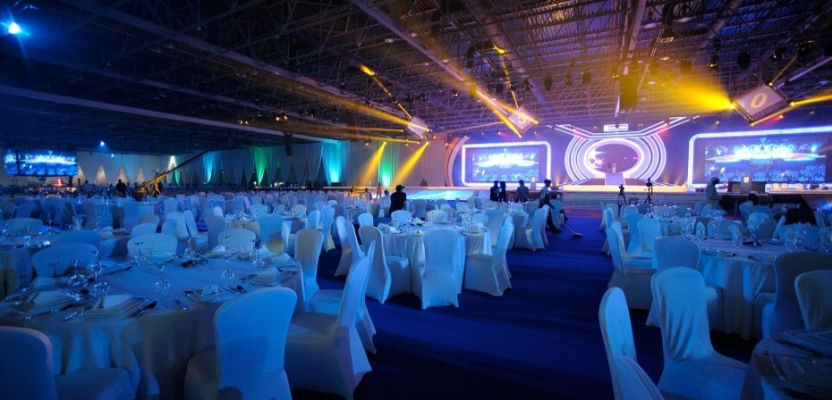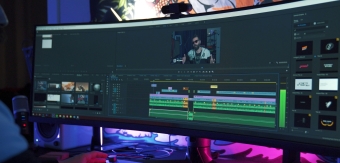Now that the pandemic has gently receded into the background hum of everyday life, the events sector has finally started to come back to life. Indeed, we recently celebrated a pretty spectacular event ourselves with our 2022 Annual launch earlier this month.
Events don’t just happen though, they need a team of dedicated individuals working under the guidance of an events designer, otherwise they are likely to be chaotic and unfulfilling experiences. Very few businesses, however, throw enough events to legitimise hiring a full-time events designer and that’s why so many events designers and planners choose to either join a dedicated events planning business or go freelance.
As a freelance events designer, however, it can often be confusing to figure out exactly how much to charge for your services, particularly if you’ve only recently started freelancing. Of course, several factors go into determining your rate, including events planning and operating expenses, salaries, and profits. Rates also vary based on where you operate your business, the types of projects you choose to take on, and what the market is willing to pay.
Freelance events designer rates
There are scarce resources online when it comes to exactly how much the best freelance events designers can hope to make annually as it’s such a flexible profession. It’s generally understood, however, that there are five ways possible ways to charge for your services.
Hourly
Ask yourself what you think you are worth and decide on a set hourly rate. The amount of experience and seniority you have will play a role in your decision. A common hourly rate can fall within £20/hr for a new designer and go upwards of £80+/hr for top events designers with amazing portfolios. Typically, you can charge about 30% more for a corporate event than a social event. Adjusting your prices based on the market you are serving (social vs corporate) is an acceptable practice.
Always remember to define careful parameters around expectations so that both parties are in agreement as to what services will be provided. As an event planner, you should include a reference to billing for all reasonable business expenses that may be incurred.
Daily
At some point in your career, you will be probably asked to do a day-of coordination. When a client wants to hire you for day-of service, it means they have chosen their own vendors and work with them directly while you come in on the day of the event to make sure it runs smoothly. You can charge either by the hour or a flat fee for day-of coordination.
You should assume 8 – 10 hours of work on the day of the event (multiply that by your hourly rate to get a flat fee), but do not forget the preparation you will have to do. We like to say you should prepare for at least one month to familiarize yourself fully with all aspects of the event you are coordinating. The extra preparation prior to the event may take you an additional 10 – 20 hours so be sure you take this into account when figuring out your fee.
Flat fee
Flat project fees are typically used for packaged events and may be calculated on a per-person basis with many stipulations and caveats. In this scenario, the client may contract directly with the event designer to coordinate all logistics, catering, venue, lodging expenses, etc.
For example, assume you are being hired to organize a one-day event for 15 guests. Your client wants you to quote a flat fee for transportation, a private guide, lunch and any/all admission fees to venues. However, they also ask that you provide a high-level breakdown of each expense item. To offer this, you must come up with a flat fee by determining how much all aspects of the project will cost. You must negotiate and calculate the cost of all services, including your time, and quote a combined total for expenses.
Percentage
Some prefer to charge clients a percentage of their total event budget for their events designer jobs. The biggest difficulty with this method of charging is to present it to your client in a way that they will approve it. If you think you can run this by them without the client questioning your billing method, then this is a possibility you should consider. Typical percentage amounts are 15 – 20% of the event budget. You can adjust it lower to suit your experience level.
As an example, let’s assume you are being hired to organize a private event 40 guests with an average of £175 per person. Let's estimate that it takes you a total of 15 hours to meet with your client, plan, attend and complete all follow up on this event. If you charge a rate of 18% of total expenses, you will earn just a little more than your targeted hourly rate of £75/hour.
Commission
A minority of events designers choose to either heavily discount their client fees or charge nothing for their service and make all their money by taking a commission from the vendors they hire. This method of billing has some supporters and some who dislike it. Those against this method say that you are doing a dis-service to your client by selecting vendors who are not the best at what they do but they will pay you the highest commission.
Supporters of charging a commission say they still select the best vendors they know, but they just go the extra step to work out a commission structure. We would recommend against using this method unless you are 100% transparent with your client about what you do. It may be a tempting way to undercut the competition but overall, it will leave more clients questioning your vendor selection than not.
Asking around
We would also recommend reaching out to the dozens of events designers on Creativepool for advice not only on charging but on building your portfolio and advancing your career.






